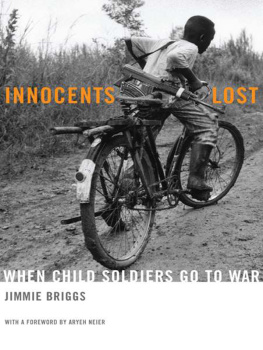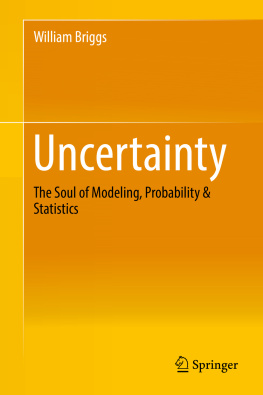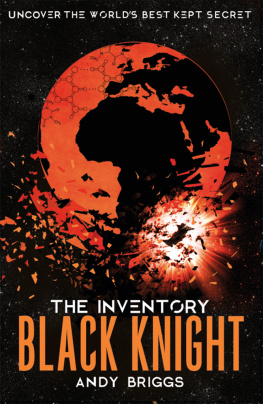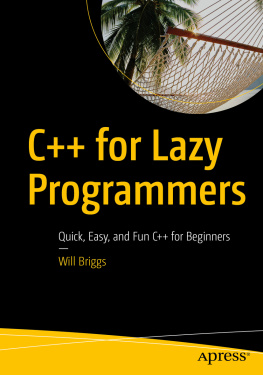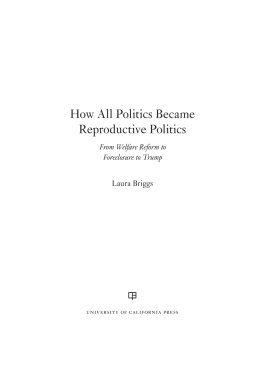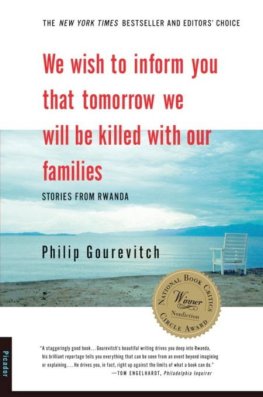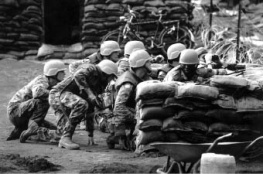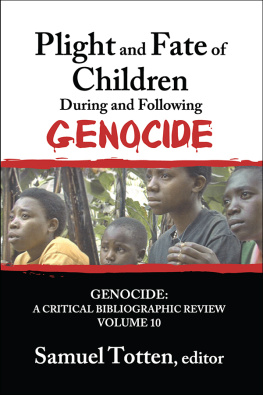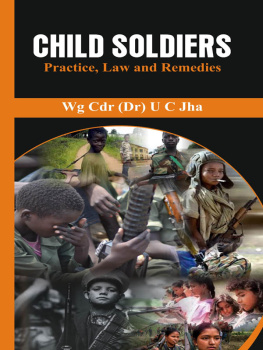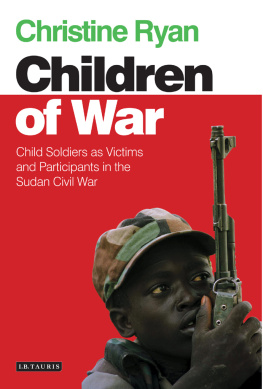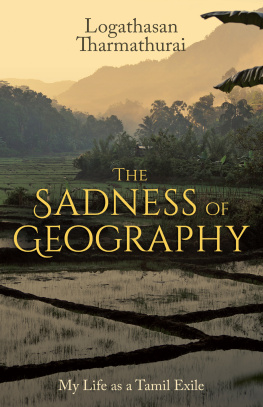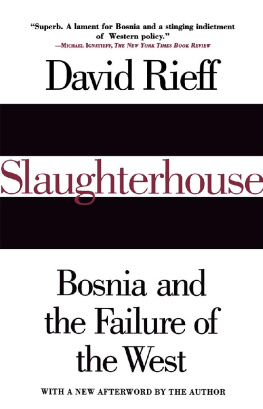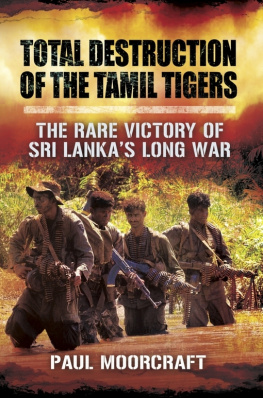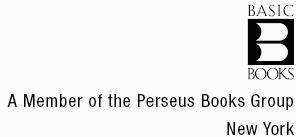All rights reserved. Printed in the United States of America. No part of this book may be reproduced in any manner whatsoever without written permission except in the case of brief quotations embodied in critical articles and reviews. For information, address Basic Books, 387 Park Avenue South, New York, NY 10016-8810
Books published by Basic Books are available at special discounts for bulk purchases in the United States by corporations, institutions, and other organizations. For more information, please contact the Special Markets Department at the Perseus Books Group, 11 Cambridge Center, Cambridge, MA 02142, or
Briggs, Jimmie.
Innocents lost : when child soldiers go to war/Jimmie Briggs.
p. cm.
Includes bibliographical references and index.
ISBN-13: 978-0-465-00798-1 (hardcover : alk. paper)
ISBN-10: 0-465-00798-8 (hardcover : alk. paper) 1. Child soldiers. 2. Children and war. I. Title.
Forword
O VER THE LAST SEVERAL YEARS a number of international initiatives have been undertaken to halt the practice of using children as soldiers. The United Nations Security Council has attempted to shame the forces engaged in this practice by publishing a list identifying them. As yet, however, these efforts have not had great consequence. Child soldiers are used in armed conflicts in more than twenty countries in various parts of the world. Often they are employed both by government forces and by guerillas battling them. At any given time, it is generally estimated, about three hundred thousand childrenmany girls as well as boysare employed in armed conflict.
Jimmie Briggs has deepened our understanding of this terrible phenomenon by seeking out children in some of these conflicts, telling their stories and the stories of their families and their communities, and enabling us to see the national and international political context that shapes their destinies. An important feature of his research is his examination of the efforts that are made in some placesbut not enough overallto rescue children from coerced military service and to provide them with assistance in reestablishing an approximation of normal lives.
In bringing us face to face with the young people who have been child soldiers, Jimmie Briggs performs an important public service. He helps us to realize that, no matter the terrible crimes in which many of them have participated, they are children who share much in common with our own children. In this way he may light the fire needed for effective measures to halt the recruitment of childrengenerally by forcefor armed combat.
It is not a problem without a solution. The international agreements and the shaming lists are steps in the right direction, but many more are required. The UN Security Council could prohibit the supply of weapons to governments and guerilla forces that use child soldiers. This could be followed by the publication of lists of countries supplying such weapons. If the Lords Resistance Army, the bizarre guerilla force that has devastated northern Uganda for two decades, is immune to denunciations of its use of child soldiers, it is possible that the countries from which it purchases weapons are more susceptible to stigma.
So-called smart sanctions, such as travel bans on leaders of governments and armed forces employing child soldiers, or freezes on their assets abroad, could also be effective. Perhaps the most useful method of curbing the practice would be international criminal prosecution of those responsible. The former president of Liberia, Charles Taylor, has been indicted by the Special Court for Sierra Leone for recruiting child soldiers, as have other defendants before that court. (Indeed, David Crane, the American military lawyer who serves as chief prosecutor for that tribunal, which is jointly sponsored by the United Nations and the government of Sierra Leone, early on manifested his seriousness in addressing the problem of child soldiers by appointing a specialist in childrens rights to his staff.)
The problem of child soldiers could also be addressed on a global level by the new International Criminal Court. Though it lacks jurisdiction over many of the forces that use child soldiers because their governments have not ratified the treaty for the court, that problem could be solved if the Security Council were to confer it with jurisdiction.
In exploring the issue of reintegration of former child soldiers into their families and communities, Jimmie Briggs may also help to mobilize more international support for such programs. If the measures taken up to now have done little to prevent the enlistment of children in armed conflict, the least that can be done is to assist those who manage to escape or who bring an end to their service in some other way. Neglecting them after they have been taught to kill compounds the tragedy of their lives and, most likely, helps to ensure that they pose a continuing threat to the lives of others.
Aryeh Neier
President, Open Society Institute
January 2005
Preface
C HILDRENS PARTICIPATION IN ARMED CONFLICT around the world is a huge challenge for national governments, peacemaking and peacekeeping forces, and humanitarian organizations, yet a nearly invisible one. Even in the most intense media coverage of a war, the children who are affected receive the least amount of attention. The tragedy of child soldiers is hidden in plain sight.
Youth are attractive to many military commanders throughout the world because they can be easily trained to carry out the most repulsive orders, they are able to tote most of todays lightweight weapons, and they can be found in abundance when adult males become scarce. The sad truth is that, under the right circumstances, children are capable of the most horrific acts.
Several years ago I picked up a copy of the New York Times to find an all-too- familiar image staring back at me. In a front-page color photograph a Liberian gunman knelt in a city street, howling in anger while pointing an automatic rifle at the photographer who captured his image. More chilling than the weapon he held was what he wore on his back: a pink teddy-bear backpack, a telling symbol of his lost youth. The phenomenon of children in combat is not recent, nor is it solely an issue in African countries, as many may assume. Children as young as eight years old are being used as soldiers, scouts, cooks, and sexual servants in mostly internal conflicts, from Uganda and Afghanistan to Sri Lanka and Colombia. This is a human rights violation issue just as deserving of attention as AIDS, refugee displacement, and economic disparity.
It wasnt until 1996 that the issue of children and war became a serious international concern. Graa Machel, a former first lady of Mozambique and eventual wife of Nelson Mandela, was asked by the United Nations Secretary-General to do a study examining the subject with the assistance of UN agencies and non-governmental organizations. Simply titled Impact of Armed Conflict on Children, the report graphically documented the ways in which childrendefined as younger than eighteen by international humanitarian lawwere exploited by adults in conflict. Popularly known as the Machel Report, it created a harrowing portrait of millions of children succumbing to sickness, displacement, and orphanhood because of war. It also revealed that more than 250,000 kids were actively fighting in conflicts around the world, most under the age of fifteen.

